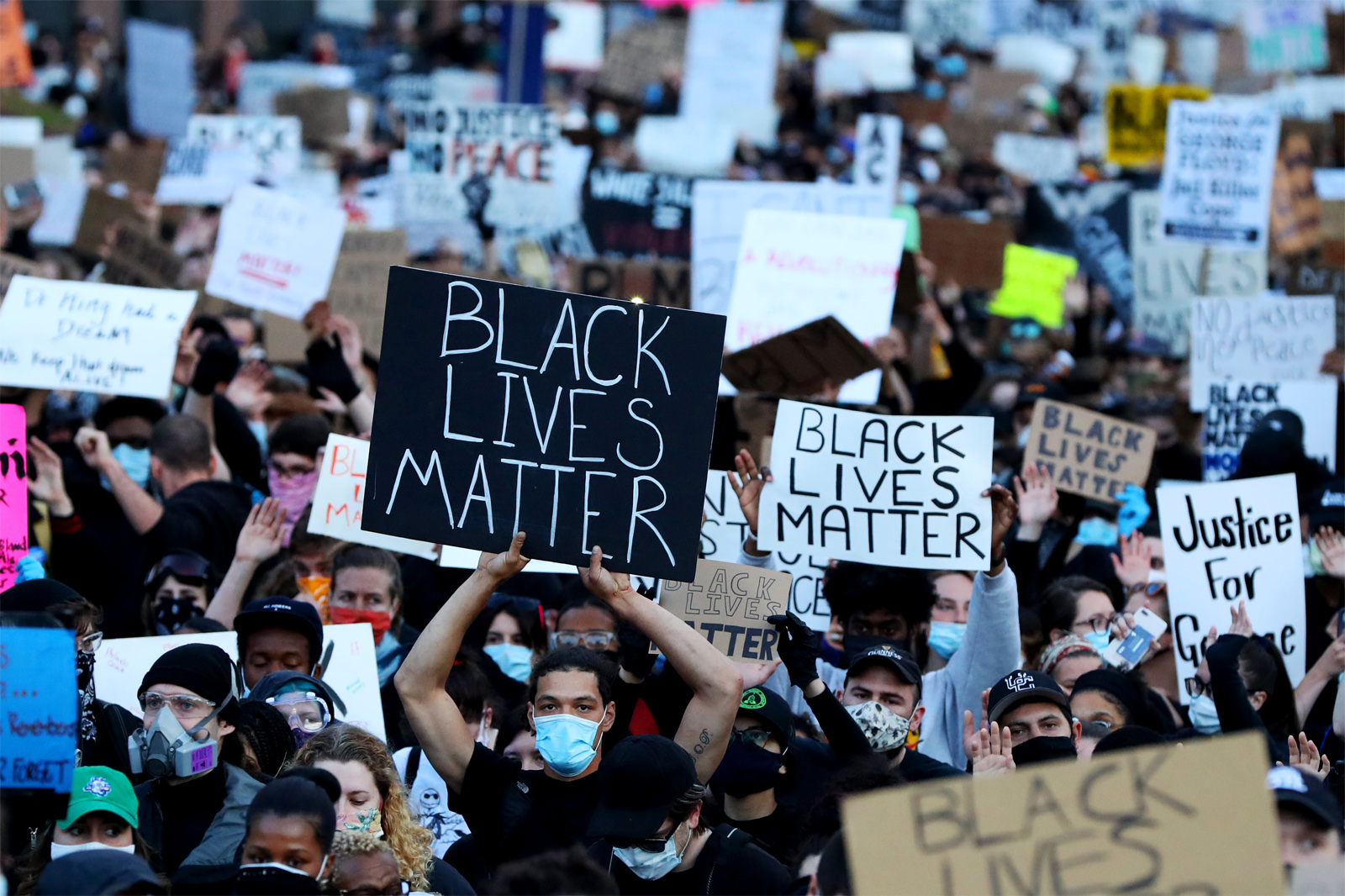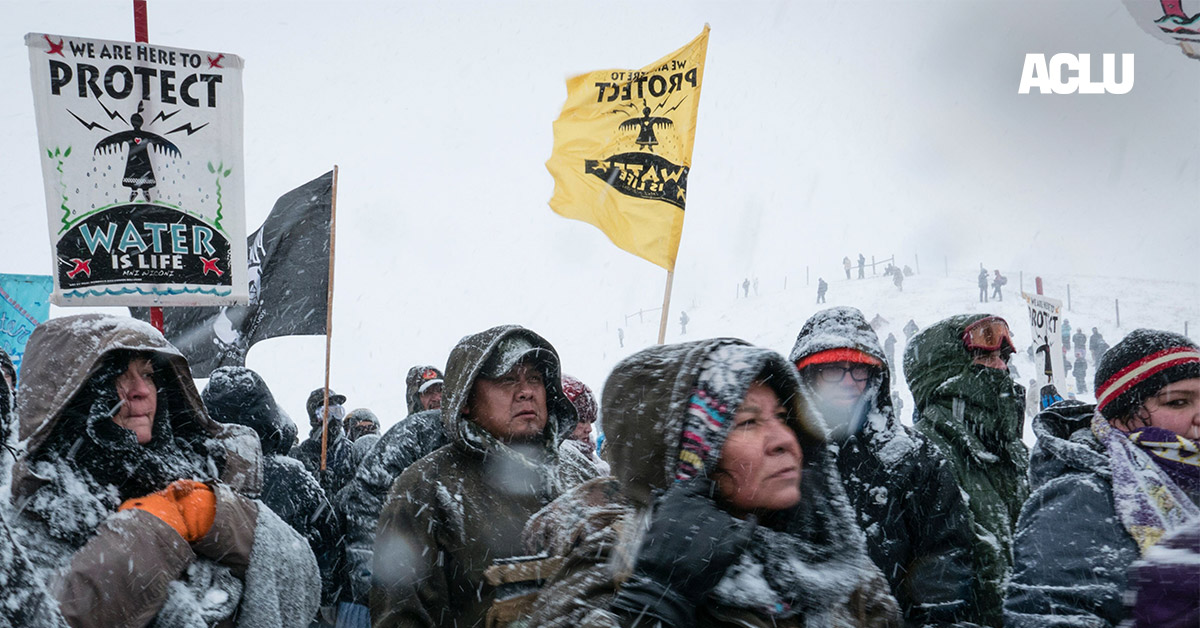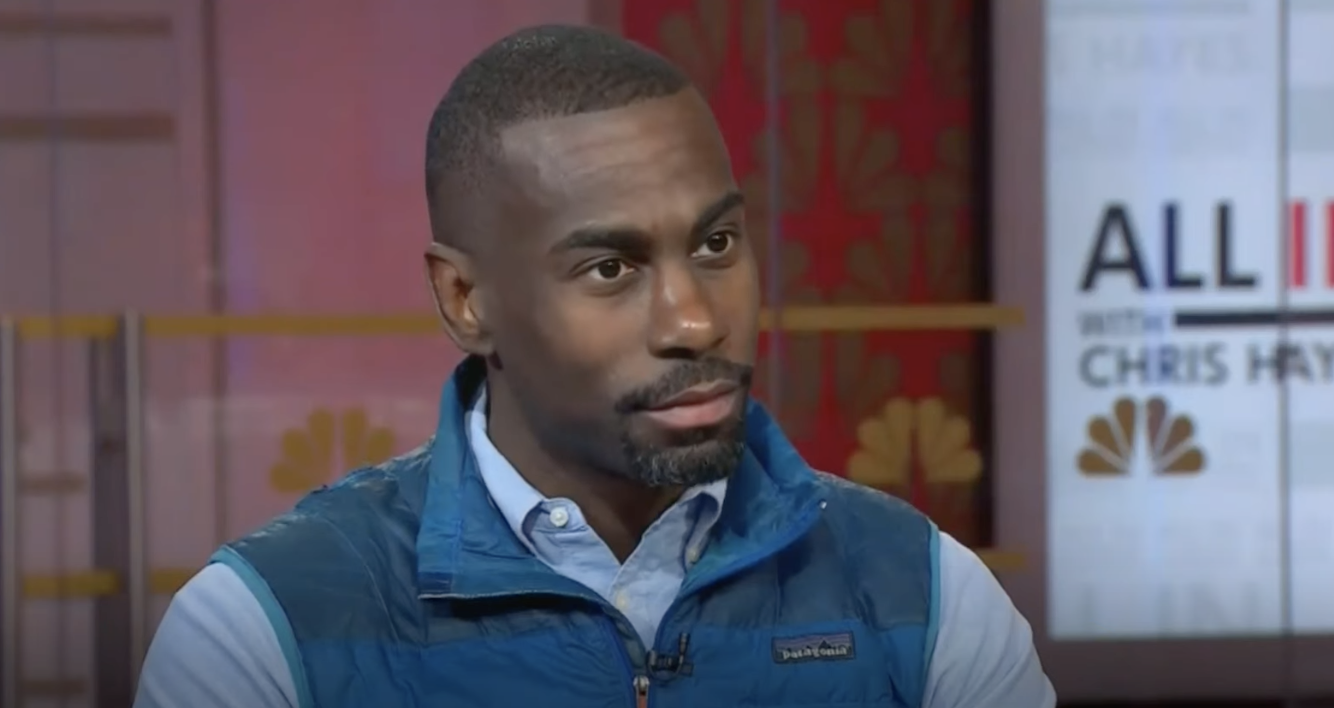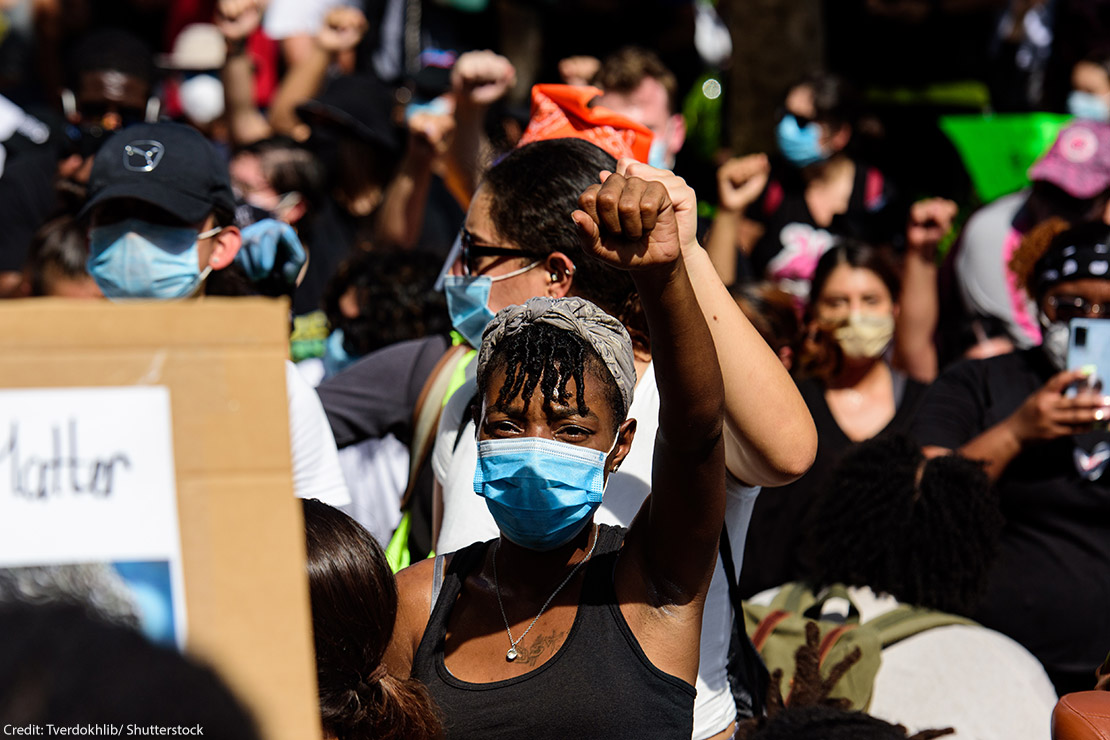The Supreme Court recently declined to hear McKesson v. Doe, a case that could have confirmed that the First Amendment protects protest organizers from being held liable for the unlawful acts of others present that the organizers did not direct or intend. With the Supreme Court now deciding not to hear the case, the Fifth Circuit Court of Appeals, which covers Louisiana, Mississippi, and Texas, has held that protest organizers can be held liable for the independent violent acts of others based solely on a showing of negligence.
Many people across the country have expressed concern about how the Supreme Court’s decision not to review or hear the case at this stage will affect the right to protest. The ACLU, which urged the Supreme Court to consider the case, has analyzed the implications of the Court’s refusal to review.
What happened in Mckesson v. Doe?
The lawsuit, McKesson v. Doe, was brought by a police officer against prominent civil rights activist DeRay McKesson. The officer claims that McKesson should be held liable for injuries sustained when an unidentified individual (not McKesson) threw a “rock-like” object at the officer during a protest in 2016 following the killing of Alton Sterling by Baton Rouge, Louisiana police.
The officers do not allege that McKesson encouraged or knew about the rock throwing, but rather than suing the rock throwers, they are suing on the theory that McKesson organized the protest and had a duty to protect everyone there, and that he “should have known” that violence was likely.

McKesson v. Doe
Can protest leaders be held legally liable if unidentified individuals commit violent acts during protests that result in injuries?
Source: American Civil Liberties Union
The idea is that protest organizers can be held liable for actions taken by strangers at the protest against others, not because the organizers requested or intended the actions, but simply because the actions were foreseeable. If this theory of “negligent protesting” were accepted, hosting protests would become much more dangerous. The ACLU argues that this liability standard violates the First Amendment because it places an unconstitutional burden on the right to protest.
Nevertheless, after years of procedural back-and-forth between the courts, the Fifth Circuit ruled in 2023 that the negligence claims against McKesson did not violate the First Amendment. Instead, the Fifth Circuit held that protest organizers can be held liable for the independent violent acts of others with only a showing of negligence.
Recognizing that this decision clearly violates fundamental principles of the First Amendment, the ACLU and co-counsel filed a petition for leave to appeal, asking the Supreme Court to overturn the Fifth Circuit’s clearly erroneous decision. Unfortunately, the Court denied our petition.
What does the Supreme Court’s refusal to review mean for our right to protest?
While the Supreme Court generally does not explain why it refuses to hear a case (and it does so for a variety of reasons), Justice Sonia Sotomayor wrote a statement that may explain her reasoning for dismissing the case: the Supreme Court has already resolved the issue and there is no need to further clarify the law.
In a statement, Justice Sotomayor explained that in 2023, shortly after the Fifth Circuit decision, the Supreme Court confirmed in Counterman v. Colorado that negligence is not a sufficient basis for imposing liability for political expression or association. Indeed, in Counterman, the Court made clear that a showing of intent is required when drawing the line between unprotected incitement and the “strong protest against the government or the prevailing social order” that is at the heart of the First Amendment. This is a much higher standard than negligence, which asks only whether a person who did not know what impact speech would have should have known about the possible impact. Intent, by contrast, requires that the speaker knew, desired, and aimed for the resulting harm.
Justice Sotomayor concluded her remarks by emphasizing that while the Fifth Circuit did not have the benefit of the Supreme Court’s recent Counterman decision at the time of its decision, lower courts in that case (and generally) now do and are expected to apply that decision fairly in future cases.
Has our right to protest changed?
Some have argued that the Supreme Court’s decision not to hear the case means that the right to protest has effectively been abolished in three US states, but that’s not accurate.
While it is true that the erroneous Fifth Circuit decision has not been reversed and may technically be applied against protest organizers in Louisiana, Mississippi and Texas, it is important to understand two things.
First, separate from the First Amendment issue, there is the question of whether a “fault protest” claim exists under state civil law. In Mckesson, the Louisiana Supreme Court held that it does, but the high courts of Texas and Mississippi have not done the same. This means that the “fault protest” theory in Mckesson is unique to Louisiana law.
Second, when it comes to the First Amendment, the Supreme Court has clearly held in many other cases that negligence alone is too low a bar for holding someone liable for the violent or other illegal conduct of others at protests.
To take one example, in 1982 the Supreme Court ruled that the Constitution does not advocate violence, but it does limit the government’s power to hold peaceful protest leaders responsible for violence when they do not direct or intend it. This seminal civil rights case, NAACP v. Claiborne Hardware Co., has been cited repeatedly to secure strong speech protections, including in the dismissal of a lawsuit against then-candidate Donald Trump for violent acts committed by others at a campaign rally and in a challenge to efforts to suppress Keystone XL pipeline protests. As Justice Sotomayor’s statement highlighted, the Supreme Court recently reaffirmed these rules in Counterman:

South Dakota governor abandons attempt to silence pipeline opponents
The state’s swift withdrawal should serve as a lesson to other legislatures: If you criminalize protest, we will sue.
Source: American Civil Liberties Union
However, because the Supreme Court did not formally overturn the Fifth Circuit decision, it is possible that a Louisiana court may decide to apply the Fifth Circuit’s reasoning. For example, let’s say a small crowd at a protest in Louisiana becomes violent, and then a protest organizer who is unrelated to the violence is sued for negligence. The lower court should heed Justice Sotomayor’s statement, correctly apply Counterman, and dismiss the case as a violation of the First Amendment. However, it is possible that the lower court may still apply the Fifth Circuit’s rulings issued before Counterman. If this happens, the ACLU will fight alongside the organizers to ensure that the correct rules are finally applied and that the Fifth Circuit’s clearly erroneous rulings are not applied anywhere else.
Since the founding of our country, there have been attempts to silence dissent during mass protests like today’s. But the Supreme Court has consistently upheld the right to protest and to be accountable only for our actions. Today, the ACLU urges lower courts to continue to protect our rights and prevent the Fifth Circuit’s wildly flawed theory from being upheld. No one should be afraid to voice their dissenting opinion, advocate for change, or stand up for a cause they believe in.


